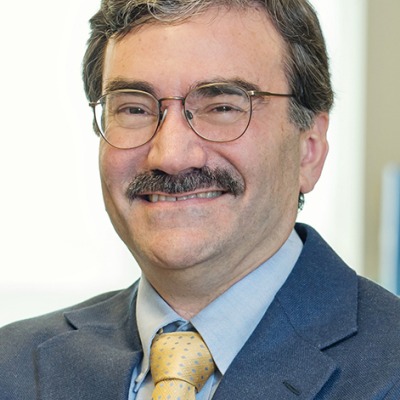Daniel Klionsky, Ph.D.


A cell biologist, Klionsky is renowned for his pioneering contributions to the understanding of autophagy, the process by which cells break down to survive stress conditions such as starvation, and the role autophagy plays in cancer, neurodegenerative diseases and other areas of human health.
A California native, he joined the U-M faculty in 2000.
Working with baker’s yeast cells, Klionsky characterized the protein pathways and signaling mechanisms by which a cell senses and responds to its environment. He also identified the cytoplasm-to-vacuole targeting pathway, a type of selective autophagy. His lab was the first to demonstrate endoplasmic reticulum stress-induced autophagy and autophagy in zebrafish.
Klionsky established the unified autophagy-related nomenclature for the field in 2003. He edited the first textbook on the topic and is founding editor of the journal Autophagy. The holder of two patents, Klionsky has edited five books, published more than 340 research papers, and given more than 140 invited talks.
The first biologist to win the National Science Foundation Director's Award for Distinguished Teaching Scholars, Klionsky incorporates a hands-on approach to teaching biology that features short, frequent quizzes and problem-solving activities. He also incorporates music, art and dance. He received funding from U-M’s Third Century Initiative to create a three-dimensional handout to engage students with visual disability and others through tactile stimulation.
Klionsky also co-chaired the first Gordon Research Conference and Keystone Symposium focused on autophagy.

Read an interview with Daniel Klionsky in which he discusses his research and teaching.